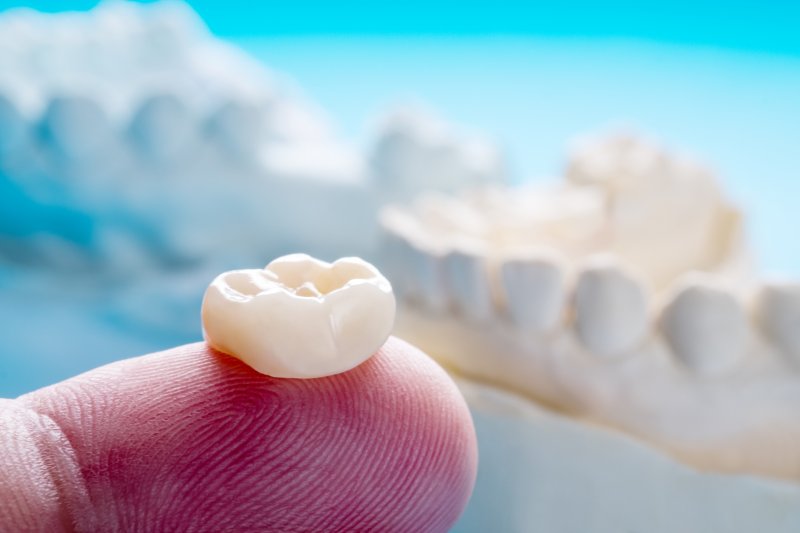
Teeth can become damaged in many different ways. Whether you have suffered from tooth decay or experience a dental injury, having a damaged tooth doesn’t necessarily mean that you need to say goodbye to it. Dental crowns are used to protect structurally compromised teeth so that they don’t need to be extracted. They can be made out of many different materials. Here are just a few of the most common options.
Gold
Gold has been used for a long time in dentistry because it is extremely durable and long-lasting. They rarely chip or break, and they wear down the least over time. It is also gentle on the opposing teeth. However, there are a few drawbacks of gold. This includes the fact that it conducts hot and cold temperatures quickly, so it can result in some initial sensitivity for a few weeks after being placed. It is also visibly different from your natural teeth, so it isn’t necessarily the best option for cosmetic use.
Porcelain Fused-to-Metal
This crown can be color-matched to the color of the surrounding teeth to give you a natural appearance. However, sometimes the metal under the porcelain caps shows as a dark line. There is also the possibility of the porcelain chipping over time and wearing down the adjacent teeth.
Full Porcelain
This type of crown has been considered to be the most lifelike and natural-looking restoration available. Porcelain doesn’t conduct heat and cold efficiently, so sensitivity is reduced. They are a great option for patients who have sensitivities with certain metals. Porcelain isn’t quite as strong as other materials that can be used, but it is the most cosmetically appealing and it won’t expand and contract when exposed to different temperatures.
Dental Composite
Dental composite is the least ideal when it comes to strength and durability, but it is a preferred option for patients who are highly sensitive to metals and porcelain. The bonding techniques are less sensitive than full porcelain and the material is less reactive than gold. While this can be a good solution for many people, it would likely need to be replaced more often than other crowns.
Dental crowns aren’t all the same! They come in a wide variety of options. By seeing your dentist, you can discuss which material would best fit your needs and help to restore the integrity of your smile!
About the Author
Dr. Brad Weiss earned his dental doctorate from Indiana University’s School of Dentistry in Indianapolis where he was awarded the Dentsply International Merit Award for Prosthodontics. He continued his education at the L.D. Pankey Institute in Florida and has been a part of the Visiting Faculty since 2008. Currently, he serves on the Chicago Dental Society’s mediation committee. If you’re in need of a dental crown, he’d be happy to help! For more information or to schedule an appointment at his office in Skokie, visit his website or call (847) 864-0188.
